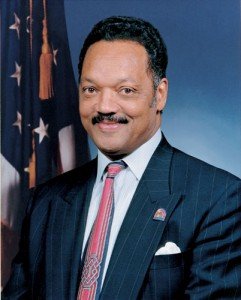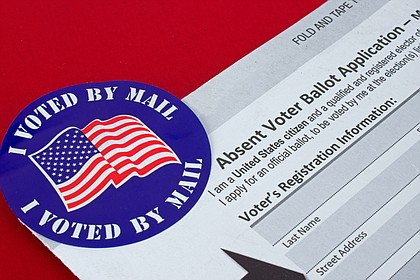The Vote Is the Centerpiece of Democracy
Jesse Jackson | 8/7/2020, 7:44 a.m.
August 6 is the 55th anniversary of the Voting Rights Act. If the constitutional amendments passed after the Civil War -- the 13, 14 and 15th Amendments -- were the "second founding" of democracy in America, the Voting Rights Act, which after nearly a century of segregation gave legal effect to the 15th Amendment that outlawed discrimination in the right to vote, should be considered the "third founding." Selma was its Philadelphia. John Lewis, Martin Luther King, and Lyndon Johnson were its founding fathers. Over the last decade, the act and the right to vote have come under unrelenting attack, an attack that is now escalating dramatically.
The Voting Rights Act outlawed the various tricks and traps that states in the South used to deprive blacks of the right to vote. It outlawed discrimination against racial and language minorities, providing Hispanics with protection among others. It identified states with an egregious history of discrimination and required pre-clearance of any changes in their election laws by the Justice Department.
The results were immediate. African American, Hispanic American and Asian American registration increased dramatically. In the former confederate states, African Americans elected to the state legislators increased from three to 176 in 20 years. Local elected officials went from less than 1,500 to 10,500. In 1964, there were five African American representatives in Congress and no senators. In today's Congress, there are 51 representatives, three senators and two non-voting delegates. The stunning increase in political participation by people of color culminated in the election of Barack Obama to the presidency in 2008.
The reaction to the law began almost immediately. Republicans under Nixon sculpted their infamous "Southern Strategy" to capture white voters in the South. In 2013, Chief Justice John Roberts, in a shameless act of legislating from the bench, marshaled the right-wing majority of the Supreme Court in Shelby v. Holder to decide that the geographical focus of the act was "out of date," despite the fact that it had just been renewed by overwhelming bipartisan majorities of both houses of Congress after extended investigation. Roberts' assertion that discrimination was behind us was immediately belied by a flood of actions aimed at making it harder for blacks and other minorities to vote. Without prior review, Republican-led states, particularly those in the South, enacted partisan gerrymandering, dual primaries, voting roll purges, closing voting sites, limiting early voting, requiring specific forms of voter ID and more.
Today, this reaction has moved to new extremes. Donald Trump -- aided and abetted by Republican senators and governors -- has sought to discredit voting by mail, blocking needed funds for the U.S. Postal Service and the states to gear up for mass voting by mail, the sensible, safe way to vote in the midst of the pandemic. Trump has even argued that only those votes counted on Election Day should determine the election, knowing that massive voting by mail will necessarily take several days to total a full count. Not surprisingly, polls show that a higher percentage of Democrats plan to vote by mail, while most Republicans plan to vote in person.
Once more our elections are endangered by partisan, racially biased efforts to constrict the right to vote. Once more, it is time for a renewed drive to protect the vote, the centerpiece of democracy. A sensible reform agenda -- summarized by President Barack Obama in his address at the memorial for John Lewis include making voting day a national holiday, extended early voting, efficient and widespread vote by mail, automatic and same-day voter registration, and strengthening of the Voting Rights Act to enforce the law. Importantly, Senators Elizabeth Warren and Dick Durbin have taken up the cause of amending the Constitution to guarantee the right to vote, a guarantee that shockingly does not now exist.
Enforcing the right to vote ought to not be controversial. It should enjoy support across the political spectrum. However, there are always those who want to limit that right for their own political purposes. Reform is invariably met with reaction. The right to vote won't be inherited; each generation must fight to preserve and to extend it. Now more than ever, those who care about our democracy must rally to protect that right once more.
You can write to the Rev. Jesse Jackson in care of this newspaper or by email at jjackson@rainbowpush.org. Follow him on Twitter @RevJJackson.





